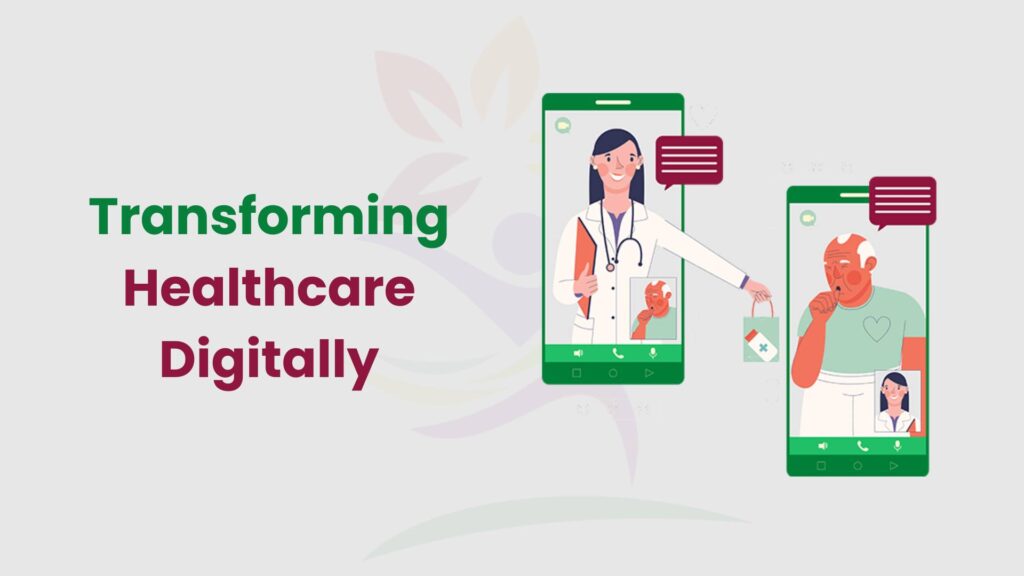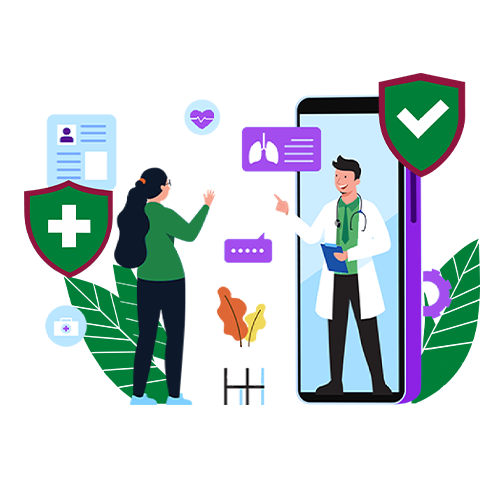In health care, recent technological advances have significantly altered the delivery of medical services including virtual specialty care. Through this transition, seeking specialized treatment has become easier and patients worldwide receive medical attention more easily and faster.
Quick Links
ToggleUnderstanding Virtual Care
“Virtual specialty care” is the term for using technological methods such as mobile phones and the Internet to provide medical expert advice. It allows patients unable to travel to remote areas to receive consultation from healthcare providers abroad.
The Rise of Virtual Specialty Clinics
Virtual specialty clinics are specific websites where patients receive professional medical help from various fields. The clinics are staffed by licensed doctors who specialize in different areas such as heart diseases, brain abnormalities, child care, and cancer among others. This is enabled by the fact that virtual clinics are online. It makes it possible for them to assist patients personally and on time regardless of their location.
Advantages of Virtual Care
1. Expanded Access to Pediatric Specialty Clinics
Virtual specialty care is an amazing realization for children who are going through serious medical circumstances. There are situations where specialized care may not be available in the near vicinity.
Virtual pediatric clinics solve this problem as children can see a pediatrician or specialists online. You get great care without having to go anywhere and your child doesn’t have to leave the house.
2. Convenience and Timeliness in Care Deliver
virtual specialty care, patients now find it easier and quicker to get medical assistance because it eliminates the need for them. It takes long journeys or spends much time waiting in queues to see specialized doctors.
This enables them to make appointments through the Internet any time they have availability. This will save them some of their time while also evading the inconvenience accompanying travel as well as queuing in hospitals.
3. Personalized and High-Quality Care
Virtual specialty care focuses on giving patients customized and great care. Doctors can study patients’ medical pasts closely, carry out in-depth check-ups, and craft detailed treatment plans that match each person’s needs. This type of care not only helps patients achieve superior results but also brings them greater satisfaction with their healthcare.
4. Integration of Virtual Urgent and Primary Care
Apart from specialized services, also, urgent and standard virtual healthcare platforms offer online medical attention. Now, individuals can access rapid assistance for pressing healthcare concerns via virtual appointments.
In severe cases, these platforms provide access to licensed and qualified doctors 24 hours a day, who can prescribe necessary drugs and recommend specialists to manage the condition further if needed.
Virtual Specialty Care vs. Telemedicine: Understanding the Difference
| Telemedicine | Virtual Specialty Care |
| Broad term for delivering healthcare services from a distance. | The broad term for delivering healthcare services from a distance. |
| Includes virtual doctor visits, remote patient monitoring (RPM), and general healthcare services. | Involves specialist services such as teleradiology, with high-resolution imaging and detailed analysis. |
| Focuses on general healthcare, increasing access to physicians, and promoting EMR use. | Focuses on intensive care, early diagnosis, and asymptomatic disease detection. |
| Uses telemedicine software for communication and data sharing between doctors. | Utilizes high-resolution imaging technology for detailed organ analysis. |
| Broad applications include routine check-ups, follow-ups, and general health consultations. | Specific applications like diagnosing diseases early and providing specialized treatment plans. |
| Enhances care quality by increasing access and efficiency. | Crucial for early disease detection and providing detailed specialist insights. |
Role of Virtual Healthcare
There are many roles in virtual healthcare. Some of them are listed below:
- Enhanced Access and Patient Reach
Virtual healthcare has simplified access to expert healthcare for folks in out-of-the-way or neglected regions. People can now connect with specialists from leading medical centers worldwide without needing to make long trips. - Efficiency and Cost-Effectiveness
Virtual specialty care has enhanced the provision of care and reduced its costs. It reduces the need for travel to see a doctor or be admitted to a hospital, cutting down on transport, accommodation, and hospital costs. It also thus helps to ease the working of healthcare providers and improve the way they utilize their resources, helping everything to just work better. - Integration of Technology and Innovation
Virtual specialty care entails elements such as teleconsultation technologies, technological interfaces such as VR, and artificial intelligence and diagnostic applications. These technologies allow doctors to make detailed evaluations, collaborate with other specialists, and make decisions by using the information which leads to better results in a patient’s condition.
Teleconsultation services also enable doctors and patients to communicate through phone calls and video calls. Medical training and practice show an effective use of VR simulations because doctors can prepare themselves for different, complicated situations.
Future Implications and Applications
Virtual reality (VR) has the potential to revolutionize healthcare by providing a means of reproducing states that mimic real-life medical situations.
The applications of VR are many; it can be applied in training courses including surgeons, patient education, patients’ therapeutic, and helping the rehabilitation program. It assists doctors increase efficiency in their practices and enhances patients’ satisfaction; it also promotes the generation of novel concepts in medical training and discovering their breakthroughs.
VR, when used in surgical training, enables surgeons to perform surgery on virtual patients rather than using people which is more secure and efficient in methods training. As a method for patients’ time spent learning, VR can demonstrate to the patient the consequences of such operations or treatments that they are going through.
Referrals to other care include mental health conditions, Physical therapy, or any other kind of health treatment that can be more engaging in a VR environment. Patients recovering from an injury can obtain motivation from doing exercises provided to them in a controlled manner, through Vyshnav’s VR system.
Virtual Care In Pakistan
These days, virtual care in Pakistan is becoming more common as technology improves and people need easier access to healthcare. With online consultations and telemedicine, patients can get medical advice and treatment without going to the hospital. This is especially helpful for people in remote areas, as it saves time, reduces costs, and gives access to more healthcare services. Virtual care is changing the healthcare system in Pakistan, making it more efficient and focused on the needs of patients.
Fitwell Hub: Pioneering Virtual Specialty Care
Fitwell Hub is proud to be an integrated hybrid healthcare ecosystem that combines the best of virtual and in-clinic services. This innovative approach allows us to provide comprehensive care tailored to the needs of our patients, offering both convenience and personalized attention. By leveraging technology, we ensure that individuals can access healthcare services seamlessly, whether through virtual consultations or in-person visits at our facilities.
Fitwellhub’s ecosystem is designed to enhance patient experience by integrating various healthcare services, including telemedicine, health monitoring, and specialized programs. With Fitwell Hub, patients benefit from a holistic approach to health that prioritizes accessibility and efficiency, empowering them to take charge of their well-being. This integrated model not only improves access to care but also fosters better communication between patients and healthcare providers, ultimately leading to improved health outcomes.
Commitment to Patient-Centered Care
Fitwell Hub focuses on the needs of both businesses and individual patients. We provide easy access to healthcare through kiosk virtual consultations, allowing employees to discuss their health concerns privately without needing to visit a clinic. This makes it simple for patients to consult with doctors and get prescriptions, improving their overall health experience.
Collaborative Healthcare Ecosystem
Fitwell Hub is a platform that brings together healthcare providers and businesses. With our kiosk virtual consultations, companies can offer their employees and clients convenient healthcare solutions. This helps everyone manage their health easily from any location, leading to better health outcomes and a more engaged workforce.
Conclusion
Virtual specialty care disrupts healthcare by allowing patients to schedule appointments with specialists through technology. These remote clinics will help increase the availability, effectiveness, and quality of healthcare for patients through teleconsultation.
Thus, as healthcare continues transforming into more virtual and innovative, virtual specialty care can contribute to the betterment of patients, advancements in medical research, and overall change the future face of healthcare.
Frequently Ask Questions
Telemedicine can be defined as the offering of services related to remote health care services, consultations, or monitoring. Though related, virtual care is a more extensive concept that refers to any kind of non-face-to-face healthcare delivery, including telemedicine and technologies such as RPM and digital health solutions.
Virtual healthcare is revolutionizing specialty care through the provision of specialty care through technological means of communication and also improving the overall care service provision.
A virtual patient is a computer program that helps train medical professionals by simulating real-life medical scenarios.
Virtual reality is the future of healthcare due to its ability to enhance medical training, patient therapy, and treatment outcomes through immersive simulations.
Virtualization in healthcare allows better organization of resources and secure data management, making medical tools and services more accessible and efficient.














